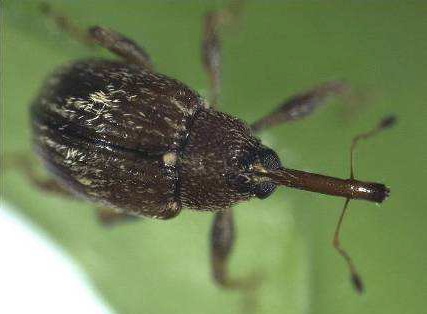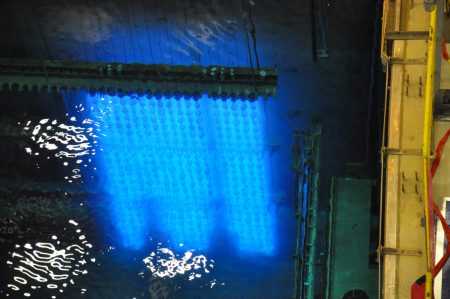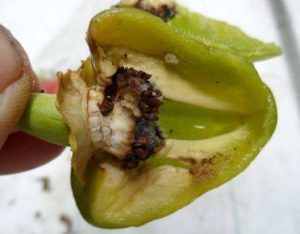A high-tech form of insect birth control connected to nuclear power could solve a devastating pest problem for Ontario farmers, says a University of Guelph researcher.

Prof. Cynthia Scott-Dupree, School of Environmental Sciences, will lead a multi-year study on sterilizing pepper weevils using cobalt-60.
Funding for the study was announced today by Bruce Power in Tiverton, Ont., and Nordion, an Ottawa-based supplier of medical isotopes.
The researchers hope to control pepper weevils, which can burrow into farmed peppers and destroy them from the inside.
“It is very difficult to control these insects when they are hidden inside the pepper,” Scott-Dupree said.
In 2016, pepper weevils caused significant damage to the pepper crop in both field and greenhouse production systems in Ontario.
Cobalt-60 is a radioactive form of cobalt produced in Bruce Power’s nuclear power reactors.
Used in sterile insect technique (SIT), the isotope could help control the weevil, said Scott-Dupree, holder of the Bayer CropScience Chair in Sustainable Pest Management.

“We want to move away from insecticide as much as possible, and SIT provides us another tool in our pest management toolbox,” she said, adding that the method complements biological control programs used by greenhouse growers.
She said using nuclear energy to sterilize insects is an environmentally friendly pest control method. “There is no danger of the pepper weevils spreading any radiation following sterilization, so it is also safe for people.”
Nordion will use cobalt-60 from Bruce Power to sterilize insects before they are released to mate with unsterilized pepper weevils in greenhouses.
“When they mate, the eggs will not be viable, no progeny results and the pest population will decrease,” said Scott-Dupree.

Glenn Thibeault, provincial minister of energy, who visited Nordion Feb. 23, said, ““It is exciting to see Ontario’s nuclear community joining forces to help researchers discover innovative, environmentally friendly ways to deal with agricultural pests that cause real harm to food crops.”
Pioneered in the 1950s, SIT has helped control the codling moth, a pest of apples, in the Okanagan Valley in B.C. since 1992.
Scott-Dupree has shown that SIT may control American serpentine leaf miner, an insect that feeds mostly on chrysanthemums.
Cobalt-60 from Bruce Power’s reactors is used to help sterilize medical devices and to treat brain tumours.
“This innovative research could improve Ontario’s agricultural sector by reducing the impact of pests on produce, while also providing a possible gateway to the future of farming,” said Mike Rencheck, Bruce Power’s president and CEO.

Scott-Dupree and her team plan to learn the best radiation dosage to sterilize pepper weevils before testing SIT releases in greenhouses.
“It is exciting to think of all the benefits this study could mean for farmers, Ontario’s economy and the environment,” she said.
Nordion’s facilities will be used to sterilize the pepper weevils.
Ian Downie, vice-president of gamma technologies at Nordion, said, “We are excited to use cobalt to see a technology like SIT, which has had wide and successful application in other areas of the world, help us here in Ontario.”